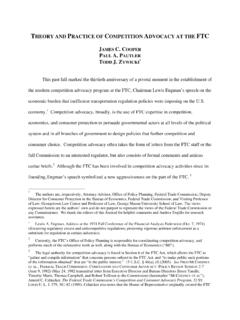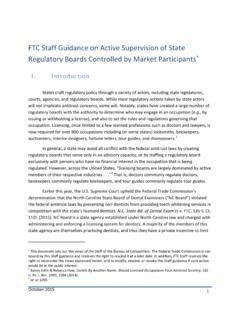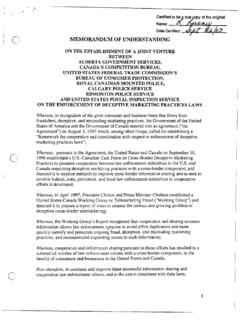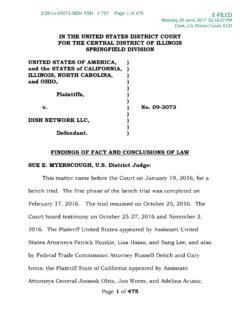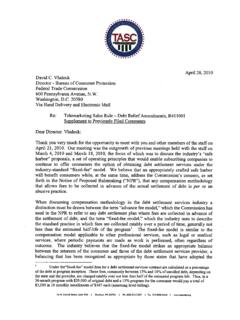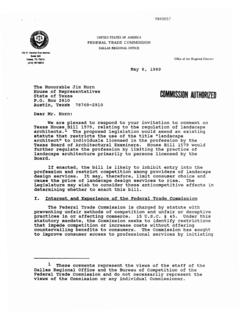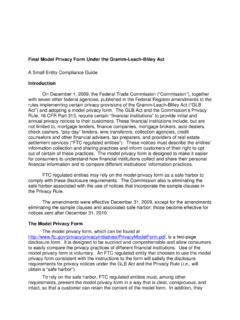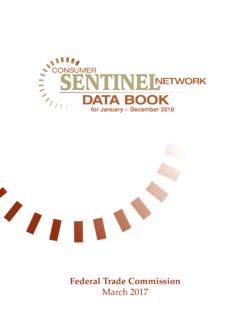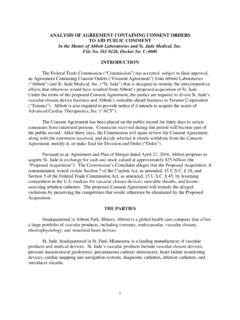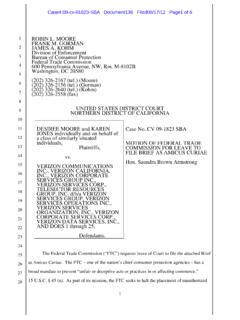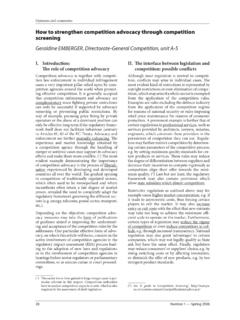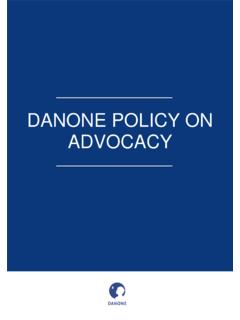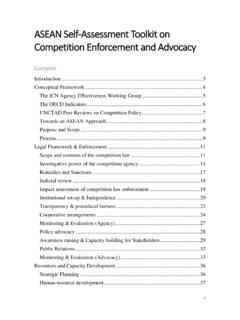Transcription of The Economics of Consumer Protection, Antitrust, …
1 The Economics of Consumer protection , antitrust , and policy Michael R. BayeDirector of the Bureau of Economics , FTC&Kelley School of Business, Indiana UniversityThese are my views and do not necessarily represent those of theFederal Trade Commission or any of the Individual CommissionersThe FTC Our Goal: Enhance Consumer welfare Three missions work hand-in-hand to achieve this goal Competition ( antitrust ) Consumer protection Public policy /Advocacy/R&DCompetition Competition: The ultimate Consumer protection Competition benefits consumers through Lower prices Improved quality Greater Consumer choice Increased innovationCompetition policy in the US Protects the competitive process from abuses Stops cartels Stops abuse of dominance Prevents mergers that would lead to price increases Advocates for the Consumer and the competitive process to other legal bodies, consumers, and businessesCompetition policy in the US (continued)
2 Focus is on Consumer welfare Competition can, and frequently does, hurt individual competitors as lower prices means lower profits, holding costs constant The FTC does not seek to protect individual competitors The FTC protects the competitive process, thereby protecting the consumerMergers: How the process works .. Merging parties file with both agencies In FY 2006, 1,768 transactions were reported under the Hart-Scott-Rodino (HSR) Act Initial review by staff of pre-merger notification office resolves 70-80% of cases quickly without any investigation.
3 Anything they can t handle goes to one of the merger divisions for further review. Quick inquiry resolves most of the rest Only a handful need in-depth review In FY 2006, 45 second requests were issued (both DOJ and FTC) or of mergers filed Most mergers don t present problems Many are pro-competitive or competitively neutral Unnecessary delay can impose barriers to efficiency-producing transactions Some mergers present competitive concerns Objective is to identify the mergers that present concerns, while quickly identifying and disposing of those that do not Most competitive concerns are resolved through divestitures rather than litigationGeneral observations about Details.
4 Pre-merger notification What transactions are reportable? How much does it cost?What is reportable?NO LONGER reportableDeals of less than $ millionMay be reportable if:One party bigger than $ millionOther party bigger than $ millionDeals between $ and $ millionAlways reportableDeals over $ millionHow much does it cost New scaled fees Deals over $ million: $280,000 $ and $ million: $125,000 Between $ and $ million: $45,000 Fees are indexedThe review process 30 day clock begins to run upon filing Pre-merger staff conducts preliminary review Many cases resolved at this stageAt the end of 30 days.
5 Two choices: Allow merger to go forward Issue detailed request for more information and documents ( second request ) Second request stops the clock After second request made Parties have unlimited time to comply, but can t merge in the meantime Formal investigation with power to compel proceeds Parties and agency negotiate scope of production of documents; internal appeal available Negotiations to resolve case continue Typically resolved through divestituresAfter parties substantially comply with second request New 30 day clock begins to run.
6 At the end of 30 days, either: Agency goes to court to block merger, or Parties are free to mergeLitigation Litigated cases (FTC and DOJ) typically resolved at preliminary injunction stage Parties usually abandon transaction if agency win in court Agency usually abandons challenge if parties win in court but not always (Whole Foods/Wild Oats) Court decisions granting or denying injunctions can be appealed to Court of Appeals (and ultimately to Supreme Court)Role of Economics in merger law economic theory and analysis provide the foundations and for evaluating the likely competitive effects of a merger Economics provides an organized structure for the information gathered about a mergerRole of Economics in merger analysis Competitive effects analysis economic theory and quantitative analysis are tools to determine whether the merger is likely to create or enhance market power ( , raise prices or lower quality)
7 Other economic considerations are also important, including Entry EfficienciesRole of economists in mergerinvestigations Provide rigorous economic logic and supporting evidentiary analysis that most accurately reflects the possible outcomes from a merger Act as complement to the lawyers in conducting the investigation Make independent recommendation to CommissionRole of economists in merger litigation Support the ongoing investigation Work with economic expert: Further analyses Expert reports Prepare for deposition and trial testimony Assist in preparation of exhibits and other economic evidence to be used at trialRecent antitrust work Whole Foods/Wild Oats (on Appeal) Google/DoubleClick (Closed) Cephalon (in Litigation)
8 antitrust work in oil and gas markets Cases Commission reports Advocacy Research Gasoline price monitoring 20 wholesale regions and approximately 360 retail areas nationwideConsumer protection For competition to thrive consumers must receive accurate information about products and services Authority under FTC Act to protect consumers against fraud, deception and other unfair business practices Truth-in-advertising laws ( , claims for food, over-the-counter drugs, dietary supplements, alcohol, and tobacco) Marketing practices (Internet, telecommunications, and direct-mail fraud; deceptive spam.)
9 Fraudulent business, violations of the Do Not Call provisions of the Telemarketing Sales Rule) Consumer protection (continued) Consumer protection also involves Providing consumers with information in situations where the market is unlikely to provide the information that consumers need in order to make their choices Educating consumers so that they may better protect themselvesRole of FTC in Consumer protection Encourage provision of truthful information in a form that allows consumers to make their own buying decisions Other government agencies focus on controlling product quality directly, as well as providing information.
10 Food and Drug Administration Food safety Drug safety and effectiveness Department of Transportation Automobile safetyRole of economists in Consumer protection Increased role due to relevance of the development of the Economics of Information Case development Evaluation Research AdvocacyRecent work by the Bureau of Economics : Consumer protection Mortgage Disclosure Study Truth-in-Lending Act Real Estate Settlement Procedures Act Online Behavioral Advertising FACTA Scoring Study Do Credit Scores Predict Risk in Insurance Markets, or are they merely used as a proxy for race and ethnicity?
